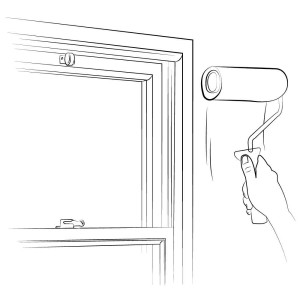All Categories
Featured
Table of Contents
5 Benefits Of Double Glazing Windows in Willetton WA
That window can transfer more solar heat in winter season than in summer season. A west-facing window on a summer season's afternoon has an angle of occurrence from near 0 approximately 30 with a large effective area of solar radiation. A north-facing window, in summer season, has a high angle of occurrence and a low efficient area of solar radiation, so can send less heat than a west-facing one.

You can rapidly and quickly enhance the thermal efficiency of your house by replacing your windows. This is one of the most efficient methods of renovation to attain improved thermal comfort. There are thousands of types of glass and frames to select from. Choosing the right ones is necessary to improving the energy effectiveness of your home.
Is Double Glazing Worth It? in Southern River Perth
Single glazing with clear glass is not very efficient when it comes to heat loss or gain. To enhance performance, you can use single glazing with a more energy-efficient type of glass such as low emissivity (low-e) glass.
The energy efficiency of IGUs also depends on: the residential or commercial properties of each layer of glass. Different glass types (for example, clear and low-e glass) can be put together in an IGU.
Stay Cool This Summer With Double Glazed Windows - Aaa Glass in Casaurina Western Australia

IGU cavities can be filled with air or a more inert, low-conductivity gas such as argon the width of the cavity. Larger cavities supply lower (much better) U values, with 12mm generally accepted as the favored space how well the cavity is sealed.
If argon is installed to the cavity in location of air, wetness is dependably omitted the level of desiccant (drying agent). The spacer (metal or polymer strip) that separates the glass layers includes a desiccant to absorb any moisture. Insufficient desiccant might cause wetness to condense on the glass surface area in cold conditions, decreasing thermal efficiency.
Stay Cool This Summer With Double Glazed Windows - Aaa Glass in Osborne Park Perth
In reality, IGUs can deliver much better energy performance for all environments, specifically in heated and air-conditioned houses. Cross-section detail of single, double and triple-glazing units Low emissivity glass (commonly referred to as low-e glass) minimizes heat transfer. Low-e glass may be either high or low transmission: High transmission low-e glass has a covering that enables daylight from the sun to enter the home to accomplish great solar heat gain, however reduces the amount of the long wavelength infrared heat that can leave back through the window.
Low-e glass has either a pyrolytic finishing or a vacuum-deposited thin film metal covering. Pyrolytic finishes are durable and can be used for any glazing; vacuum-deposited finishes are soft and are only used within IGUs. Low-e coverings can substantially enhance both U worth and SHGC; nevertheless, they need to be used properly or they will either degrade or stop working to perform as needed.
Double Glazing Vs Triple Glazing For Windows (2023) in Koondoola WA
Low-e coverings can be used in mix with clear, toned or reflective glass. Low-e finishings on glazing can lower heat transfer where required Image: Department of Market, Science, Energy and Resources Toned glass has actually colouring ingredients included during manufacture. It is available in various colours, typically bronze, grey, blue and green.
Latest Posts
How To Upgrade Your Garden's Summer House For Year- ... in Hilton WA
When Is The Best Time Of Year To Replace Windows? in Hovea Western Australia
Sustainability in Coolbellup Perth